This IoT startup plugs holes in your leaky bucket
Ganesh Shankar's startup FluxGen has developed a low-cost and local Internet of Things (IoT) solution for energy and water management so that you know exactly how much water you are using up for your bath.
Besides the problem of scarcity in developing nations, including India, wastage is an equally large one. Both power and water -- the basic requirements of daily life -- are always in short supply, and for all you know, it could be more because of wastage.
FluxGen Engineering Technologies, a startup founded by an IISc alumnus, has developed a low-cost and local Internet of Things (IoT) solution for energy and water management (EWM).
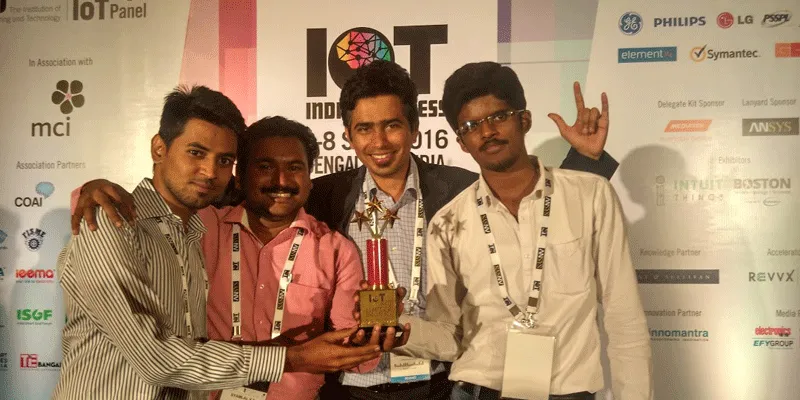
The EWM measures the energy and water consumed at any facility -- be it a factory or an apartment -- and sends the data over wireless channels to get a personalised energy and water bill, just like a mobile phone bill. The mobile and web application also gives useful tips to conserve energy and water (like leak detection, excessive consumption alert, and theft etc).
According to a PwC report, “Reducing power theft and increasing usage efficiency via mobile-enabled smart meters could save enough electricity in India to power more than 10 million homes.” And startups like FluxGen are showing exactly how.
In 2011, 33-year-old Ganesh Shankar started FluxGen as a bootstrapped venture for solar installation and monitoring. The startup got into IoT business last year, and is now part of the NASSCOM CoE-IoT ecosystem. Differentiating his product solution from that available, Ganesh says,
“Our solution is low cost and wireless, hence we will be preferred over already existing expensive and wired solutions for energy and water management.”
The EWM is suitable for rural electrification projects using solar/wind micro-grids, apartment complex (where the consumer doesn’t get personalised water bill but averaged water bill), and major water and electricity consuming factories/manufacturing plants etc. EWM monitors power parameters and help preventive maintenance of the power plant (could be solar PV plant or diesel genset etc). It also helps automatic scheduling of water tanker by continuously monitoring overhead tanks and water sumps.
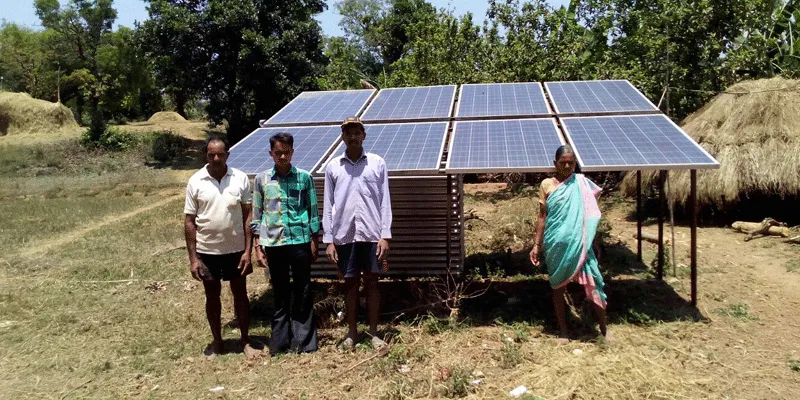
Winner of the IoT startup of the year 2016 at IoT India Congress held recently, FluxGen has already deployed the solutions for various customers, including Indian Railways, Titan Watches, Robert Bosch, Bulher group, Indian Institute of Science, Bangalore and more.
From the lab to the field
Ganesh, who was working with General Electric (GE) in Hyderabad initially in the aviation systems business and later in the smart grid business, gave all that up to do something “worthwhile.” According to him, “The career path ahead seemed less adventurous and didn’t give me enough scope to do something worthwhile. Also the work I was doing didn’t particularly solve any of the problems that we (Indians) as a developing country were facing. Entrepreneurship was by far the best answer to the career riddles that I encountered when I was 27.”
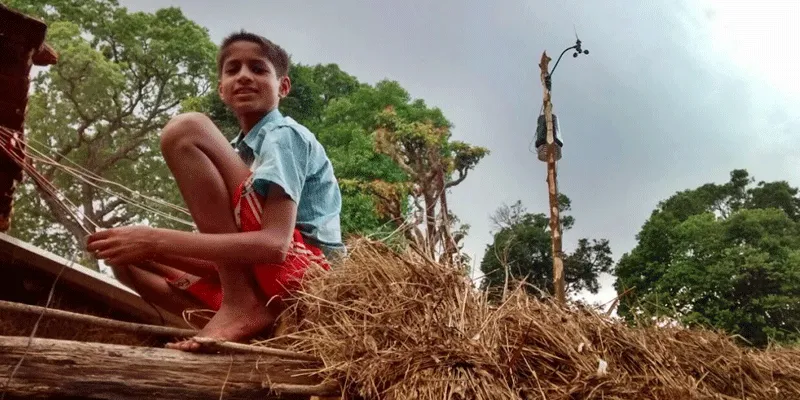
He adds that taking up entrepreneurship wasn’t a tough decision as it was taken with a sense of faith - that it will all work out fine.
Ganesh quit GE and went to a small town called Ujire (near Mangaluru) to learn solar photovoltaic systems for rural electrification through a social enterprise called SELCO . “I wanted to build competence in solar PV while understanding the challenges involved in off-grid rural electrification through on-the-field project execution,” he says.
He later started FluxGen Engineering Technologies to bridge the gaps in renewable energy systems mainly in the energy management (measurement and control) aspect. The company was bootstrapped and grew with the profits that were reinvested into the company. “We are touching the Rs 1-crore revenue mark this year, and are investing our profits in R&D,” he says.

Ganesh encountered a few challenges when he started because he feels he was more of a technocrat than a businessman. “I had worked in a startup soon after graduating from college, but I didn’t have much exposure into the financial nitty-gritty. Though I understood the delivery side of the equation very well, I did not know much about the business part of the equation,” he adds.
The startup has 20 people in the team, including interns. Ganesh got into product development through internship programmes. “We had interns from some of the top colleges in India, starting from BITS Pilani, NITs, RVCE, BMSCE etc. Since some of our customers are these engineering colleges themselves, getting interns was not a problem. The young minds added greater creativity to our work.” he says.
The business of science
Ganesh started the company with a service model. He took up projects pertaining to energy and water management, using off-the-shelf components, and customised them by developing software according to the specific requirements of the customer.
“The expense involved in running the business was high as unlike a lot of others in our line of business, we invested significant capital on research and development. We did product development from the margins we made in projects and other consulting work,” he says, explaining his business model. At times, he had to take personal loans and put that into the company to run some “dream” projects.
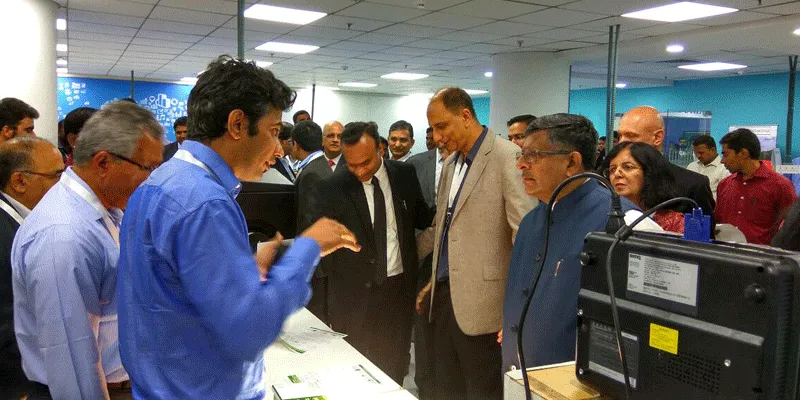
In its initial stages, the startup got into a partnership with the National Instruments though Planet NI programme, (which went through a selection process) through which it got access to cutting-edge technology for their software and hardware development.
“Running the business when we have paying customers is a very gratifying experience,” says Ganesh. However, he adds that several tough situations, such as rejection from customers/investors, cash flow problems, and not getting desired results, tested his patience at times. “I am thankful to our mentors (Gopala Krishna Murthy and Chandru Thimmapiah) who keep us in good spirit when things don’t go well and guide us with their knowledge and experience,” he adds.
Coming from a family of teachers, Ganesh found himself taking up teaching to tide over difficult times. “While I was teaching Digital Electronics for a semester at BMS College of Engineering, I was struggling in my business. The visiting faculty job not only acted as an alternative source of income, but also as a painkiller during tough times,” says Ganesh, adding that he enjoys teaching.
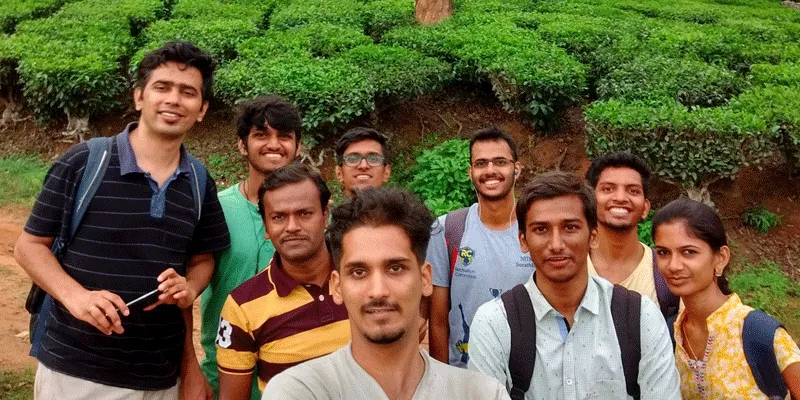
In fact, he will be starting a course from January next year at his alma mater, Indian Institute of Science, Bangalore, on Industrial IoT for engineering graduates. This course is open to the public, and is targetted towards aspiring entrepreneurs in industrial IoT.
According to Ganesh, most people who join FluxGen focus on learning not on earning, hence expenses involved in salary have not posed a bottleneck, despite the fact that they are in a high-tech industry. “My HR policy is simple. I tell my colleagues, you focus on work I'll focus on your career. It has worked fine till now.”







